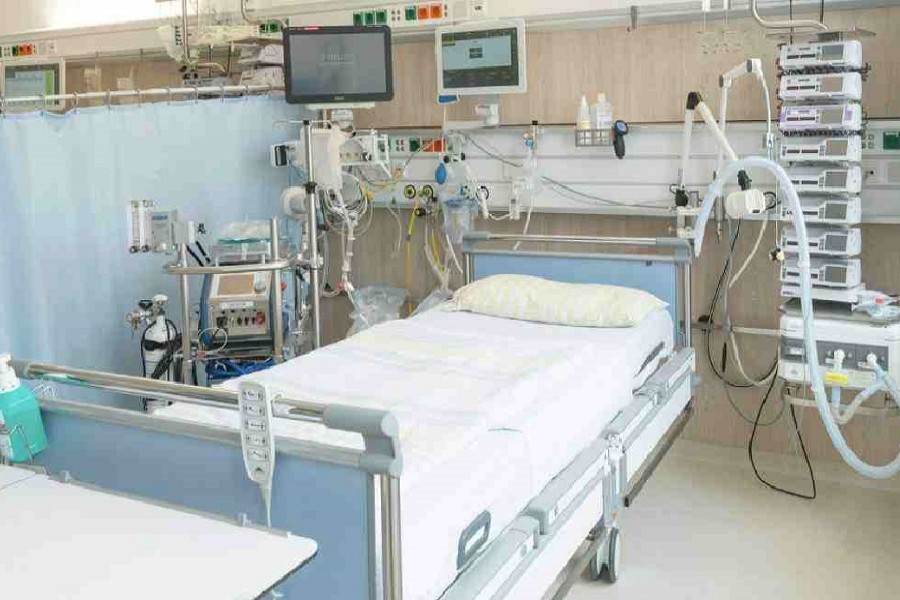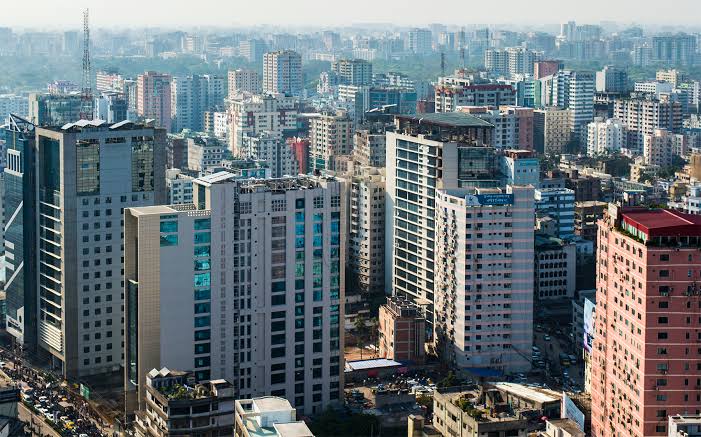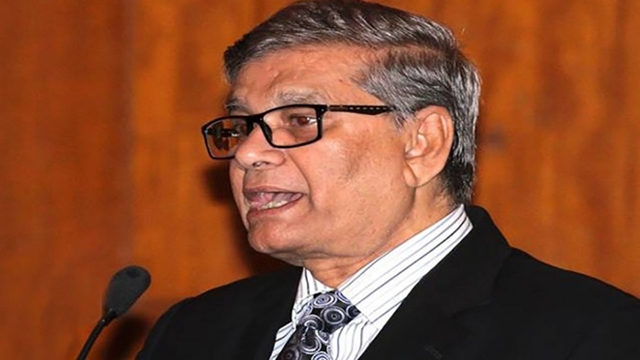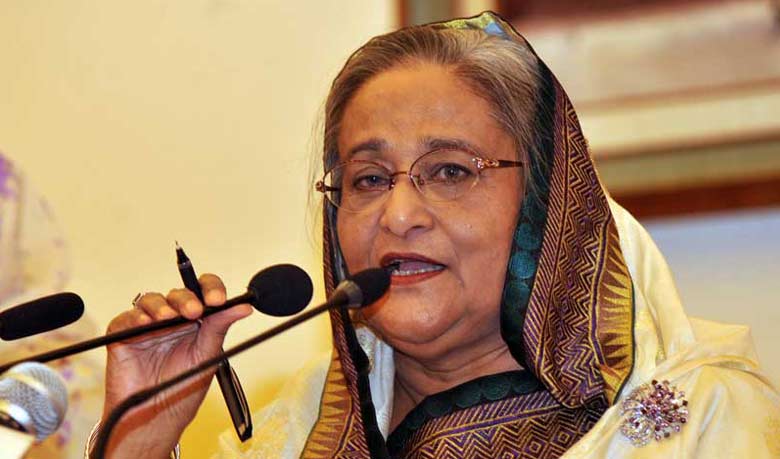Siyam Hoque
Published:2020-04-10 18:13:03 BdST
Ventilator shortage may pose a setback for BD in coronavirus fight: Physicians
As the number of coronavirus cases continues to spike in Bangladesh, health experts have warned that the country’s fight against the deadly virus may suffer a big blow due to an acute shortage of ventilators and intensive care unit (ICU) staff in the case of a serious outbreak.
According to them, around 80 per cent of COVID-19 patients do not need hospital admission. But five per cent of such patients become critically ill as their lungs get so damaged that they can no longer breathe and suffer from acute respiratory distress, and this type of patients cannot be saved without intensive care involving ventilators.
For patients with the worst effects of the virus infection, they said a ventilator offers the best chance of survival by pushing air, with increased levels of oxygen, into the lungs of the patients and give them time to fight off the infection and recover.
According to health minister Zahid Maleque, the country has 550 ventilators and the government is in a process of procuring 380 more.
Talking to the news agency, Bangabandhu Sheikh Mujib Medical University (BSMMU) vice-chancellor Prof Kanak Kanti Barua, Dhaka Medical College principal Prof Khan Abul Kalam Azad, medicine department head of Dhaka Community Medical College & Hospital (DCMCH) Prof Harun-or-Rashid, and Gonoshasthaya Kendra founder Dr Zafrullah Chowdhury said the country’s existing ventilators are too inadequate to handle the regular patients, let alone the critical coronavirus-infected ones.
They suggested the government should immediately procure a sufficient number ventilators from China and other countries where it is available, and train some anaesthetists and nurses to handle the serious patients at the ICU and put them on ventilators to boost the country’s preparedness to tackle the outbreak.
Prof Kanak Kanti Barua said the country will surely face a shortage of ventilators if the outbreak goes to a level it has gone in some other countries.
He said the government should take steps for ensuring sufficient ventilators and ICU facilitates and train manpower across the country as the number of coronavirus cases continue to grow.
“Many people are giving various hypothesis that coronavirus prevalence won’t worsen in Bangladesh due to humidity in our weather. We shouldn’t believe such unproven perception. We should get ready for dealing with the possible worst situation,” he observed.
“We don’t know how long this virus will prevail and how many people may get infected with it. So, we should increase our ICU beds and ventilators so that we can save lives from dying with acute respiratory problems being infected by the virus,” the BSMMU VC observed.
He also said there are ventilators at many hospitals, but doctors will not be able to use all those for the corona patients as there are many other critical patients who also need that support. “We can’t ignore the other patients to save the corona-infected ones. There’s no alternative to increasing the number of ventilators and ICU beds to effectively deal with the coronavirus.”
He said the post-operative system in all public and private hospitals can be equipped with ventilators and ICU facilities. “The government should also keep in touch with private hospitals so that those can also be used in case of any emergency.”
He said 80 per cent of coronavirus patients need not to take admission to any hospitals as they can recover from it by remaining in isolation at home. “Around 10 per cent patients need to get admission to hospitals and oxygen support or proper care at the ICUs while the rest need ventilator support as their lungs get damaged.”
“If the number of patients rise alarmingly, we won’t be able to save many lives without an adequate number of ventilators and ICUs,” the VC added.
Khan Abul Kalam Azad said, “We’ve the shortage of both ICU beds and ventilators. If the virus spreads badly, we ‘ll face serious difficulties in handling the critical patients.”
He, however, said the government has taken initiatives to resolve this problem. “The health minister is working on it. The Prime Minister has already instructed to ensure at least 15 ICU beds and required ventilators at all the district hospitals. China has assured us of helping Bangladesh in this regard.”
Dr Harun said the government hospitals have only 25 per cent of the total ventilators the country has. “Around 75 per cent ventilators are there at the private hospitals. The existing number of ventilators is very inadequate to handle badly-infected corona patients. Without access to ventilators, many patients will die if the outbreak takes a serious turn.”
Dr Zafrullah said that though there are nearly 600 ventilators in the country, one-third of them are not functional. “These defective ventilators should be repaired as soon as possible.”
Besides, he said, the hospitals designated for dealing with coronavirus patients are not equipped properly with sufficient ICU beds and ventilators for taking care of the patients.
Zafrullah said there is also a shortage of medical staff required to operate the ventilators and take care of patients at the ICUs. “Before placing a patient on a ventilator, anaesthetists and nurses need to perform some procedures. We don’t have enough trained anaesthetists and nurses to do so.
He said some doctors and nurses can be given short training so that they can serve the patients at the ICUs and give them ventilator support when it is needed.
Meanwhile, Save the Children on Wednesday urgently called for international assistance to help Bangladesh meet a surge in demand for ventilators to cope with the COVID-19 outbreak and avert a humanitarian disaster in the country.
Most of the country’s intensive care beds and ventilators are in major urban centres, including the capital Dhaka, making it difficult for remote communities to get access to them, it said.
“At present, it is difficult for Bangladesh to meet the expected surge in demand for ventilators to help respond to the COVID-19 outbreak,” said Athena Rayburn, Save the Children’s Rohingya Response Advocacy Manager.
“Ventilators and people trained to operate them are urgently needed to protect the host communities and Rohingya refugees to avert a humanitarian disaster. Children are at serious risk of not only contracting the virus, but also of being orphaned or neglected if family members become infected or die,” Rayburn added.
Unauthorized use or reproduction of The Finance Today content for commercial purposes is strictly prohibited.










